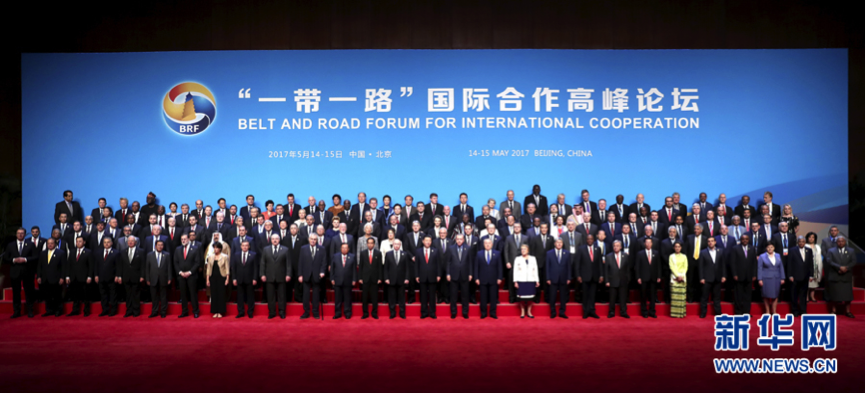Global Studies in China: The National Strategy Approach to Global Governance
archive

Global Studies in China: The National Strategy Approach to Global Governance
Since the implementation of the Chinese “Reform and Opening up” policy in 1978, globalization has deepened in China. Many universities and institutes have recently founded multidisciplinary Global Studies (GS) programs to research this process. The Institute of Global Issues (IGI), founded in 1999 at Nankai University, is among the first.
The 2010s have ushered in new dynamics in globalization and in the field of GS as a whole. For example, a constellation of recent black swan events, such as the election of Donald Trump, Brexit, and immigrant-related exclusivism, reflect an anti-globalization trend. However, the escalating threats generated by a range of global issues ensure that retrogressive endeavors to return to isolated nation-states will fail. Due to the nature and complexity of these worldwide phenomena, global governance—which invokes the engagement of all sovereign states through the coordination of diverse actors to promote cooperation while reducing conflicts—is the only way to handle them. IGI studies global governance not as a game of power politics but rather as a concert of actors, of which the great powers are the protagonists with the capability and will to achieve effective outcomes. IGI thereby promotes research on global governance from a national perspective, which means that all research and teaching are premised on the idea that the global governance strategies of major states seek to strike a balance between nation-state and supra-national levels of governance in response to the processes of globalization and the complexity of global issues.
National Governance and Global Governance: Symbiotic Balance or Mutual Exclusion?
The emphasis on the governance capabilities of sovereign states prompts many questions and debates: Is global governance an evolution and extension of national governance? What is the position of national governance in the process of global governance? What is the relationship between sovereign states and international actors around the globe?
In responding to these puzzles, Chinese GS scholars argue that effective global governance should reiterate and reflect national governance. That is, the governance of the globe should stress the dominant nature of states while preventing a regressive statism that narrowly maximizes national interests, as seen in trade protectionism, racial xenophobia, and social isolationism. The relationship between nation-states and global actors is not a “zero-sum” game, but rather a “yin-yang” system.
Chinese GS scholars argue that effective global governance should reiterate and reflect national governance.
We use the concept of “meta-governance” that desacralizes the state as the only authority while reframing it as a coordinator of government, market, and society to extend national power while establishing a cooperative partnership between various agents to achieve good governance. “Meta” expresses the balance between national and global governance, with the former as a means to further the latter. The globalized world is witnessing the modernization of nation-states in terms of values, administration, economy, and social management. A modernized national governance system is interrelated with and even determinative of the recognition, prosperity, and participation of actors at the level of global governance.
Research on National Global Governance Strategies: China, the U.K., France and Germany
Many outstanding scholars in China are making pioneering contributions in GS to explain the global governance strategy of China in accordance with structural changes in the global power system, the oriental philosophy of the world, and the transformation of China’s diplomacy. These structural changes are seen in the “Belt and Road Initiative” (BRI), a major juncture in the formation of China’s national global governance strategy. The goal of BRI is to revise the international system built after World War II while invigorating it to further a just and fair global system for mutual benefit and reciprocity. This new venture aims to achieve a balance between national interests and the common benefit of humankind.
At IGI, one of the main research areas is called “Chinese Perspective on Global Governance.” Scholars at IGI have studied such subjects as BRI and international cooperation, BRI from the European Union perspective, and BRI and global governance. In pursuing these studies, IGI cooperates closely with the Center for Silk Road Studies of Nankai University, with which it shares staff and research programs.

In addition to analysis of China’s global governance strategy, IGI has published a set of special articles on the global governance strategies of major great powers, such as the United States, the United Kingdom, France, Germany, and Italy.1 The articles comprehensively illustrate these nations’ motives, priorities, plans, and challenges in designing national strategies to solve global issues. Recent studies by researchers at our institute have focused on similarities in the global governance strategies of the United Kingdom, France, and Germany in terms of the objectives, orientation, and practical paths of these countries.
The aforementioned research has generated several insights into similarities in the global governance strategies among these countries. One is that the participation of these states in global governance is a rational tool to maximize national interests. For example, the United Kingdom seeks to shape the global governance regime through international organizations in order to intensify asymmetrical power via effective global governance policies in ways that are compatible with its self-interest.2 Germany endeavors to regulate the process of regional integration and economic globalization so as to extend its economic power by promoting the German experience of economic development.3 France seeks to utilize the French comparative advantages of rule-making and agenda-setting in global governance to maximize national interest while presiding over a multilateral regime.4
A second similarity concerns global climate governance. The United Kingdom has initiated a network of “Green Diplomacy” with a special representative on climate in Europe.5 The German climate governance strategy integrates energy and climate policies to set an example for developing countries to imitate. France, as the first signatory state of the Paris Agreement, facilitates its goal of directing global climate negotiations by asking the EU to shoulder more emission reduction promises.

A third similarity is that all three of these states create practices under the framework of EU governance in order to prevent crises that threaten the European Union as a whole. Despite the persistence of Euroscepticism and Brexit in the United Kingdom, cooperation with the European Union remains the best approach for the country to lessen the negative impacts of global issues while building national power, security, and influence. The United Kingdom, France and Germany believe that a “one-voice” European Union is beneficial to enhancing discursive and national power.6
In addition to the aforementioned research, IGI has also pursued research on the European Union global governance strategy and its relationship to the global governance strategies of the main member states; on the comparison of global governance strategies of the European Union and United States as leading actors in global governance, and on inter-regionalism in the context of globalization. Recently, researchers at IGI have started to explore China-European Union cooperation in global governance in the context of such new platforms as the Asian Infrastructure Investment Bank. In sum, research conducted at IGI is committed to expanding GS in China through perspectives and approaches that strike a balance between nation-states and globalization within the frame of concepts and processes of global governance.
Global Vision of Global Studies at IGI
IGI has built a comprehensive research faculty with a global vision that promotes the flourishing of GS. It has a faculty of ten professors and visiting instructors who are experts in international relations, international political economy, history, comparative politics, and public administration. Regional and area specializations among the faculty encompass the European Union, Latin America, East Asia, and the United States. To train future scholars, IGI admits more than 20 graduate students annually, including international students from United States, Russia, Australia, Slovenia, and Thailand.
research conducted at IGI is committed to expanding GS in China through perspectives and approaches that strike a balance between nation-states and globalization within the frame of concepts and processes of global governance.
IGI furthers its global vision by promoting global contacts. It is increasing faculty exchanges and educational programs with GS programs at world-renowned universities. Additionally, students from IGI have started their academic journeys in such countries as the United States, the United Kingdom, Germany, Japan and South Korea, and are expected to meet high standards of foreign language skills and GS research experience. These ongoing efforts to train talent and perfect the organization of research is key to establishing IGI as an authoritative center of GS and furthering the prospects of the field in China.
1. See Wu Zhicheng and Wang Yaqi, “The Global Governance of Germany: Thought and Strategy.” World Economy and Politics, No. 4, 2017, pp. 42-59; Wu Zhicheng and Zhao Yuanyuan, “An Analysis on the Participation of the U.K. in Global Governance.” Nankai Journal (Philosophy and Social Sciences Edition), No. 4, 2014, pp. 13-20; Yang Na, “The Global Governance Strategy of EU.” Nankai Journal (Philosophy and Social Sciences Edition), No.3 2012, pp. 17-25.
2. See Anthony McGrew, “Globalization and Global Politics,” in Baylis John and Smith Steve, eds., The Globalization of World Politics: An Introduction to International Relations. Oxford: Oxford University Press, 2010.
3. Michael Dauderstädt and Christian Kellermann, “Controlling the Risks of a Global Economy: Germany’s Role.” Berlin: Friedrich-Ebert-Stiftung, March 2007, p. 2.
4. Simond de Galbert, “The Hollande Doctrine: Your Guide to Today’s French Foreign and Security Policy.” Center for Strategic and International Studies (CSIS), September 8, 2015: https://www.csis.org/analysis/hollande-doctrine-your-guide-today%E2%80%9... accessed on September 19th 2017.
5. William Hague, “International Security in a Networked World.” Georgetown University, Washington, DC, 17 Nov., 2010: http://www.fco.gov.uk/en/news/latest-news/?view=Speech&id=117662682 last accessed on September 19th 2017.
6. See Wu Zhicheng and Zhao Yuanyuan, “An Analysis on the Participation of the U.K. in Global Governance,” Nankai Journal (Philosophy and Social Sciences Edition), No. 4, 2014, pp. 13-20; Michael J. Baun, “The Maastrich Treaty as High Politics: Germany, France, and European Integration.” Political Science Quarterly, Vol. 110, No, 4, Winter 1995-96, pp. 605-624.




